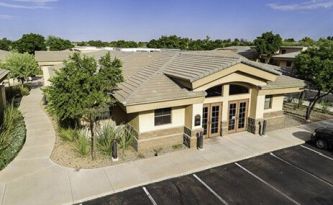Laboratory Services
Published: 12/14/2015
- Comprehensive On-Site Endocrinology and Andrology Laboratory: College of American Pathologists (CAP), Clinical
- Laboratory Improvement Amendments (CLIA), and OSHA certified — no deficiencies.
- Comprehensive On-Site Embryology (IVF) Laboratory: CAP and SART certified — no deficiencies.
- Both laboratories Food and Drug Administration (FDA) certified — no deficiencies.
- Both the endocrinology/andrology and embryology (ART-IVF) laboratories at ACFS are state of the art facilities that are CAP, CLIA, and FDA certified.
CAP
The CAP Laboratory Accreditation Program is an internationally recognized program that helps laboratories achieve the highest standards of excellence to positively impact patient care. The goal of the CAP Laboratory Accreditation Program for ART-IVF programs is to improve patient safety by advancing the quality of pathology and laboratory services through education, standard-setting, and ensuring that laboratories meet or exceed regulatory requirements. CAP inspectors also examine the entire staff's qualifications, the laboratory's equipment, facilities, safety program, and record, as well as the overall management of the laboratory.
Since 1995, Arizona Center for Fertility Studies has been awarded accreditation by the Commission on Laboratory Accreditation of the College of American Pathologists based on the results of on-site inspections every two years and self-inspections on the opposite years. The 2008 CAP inspection resulted in zero deficiencies, indicating that the ACFS laboratory is one of an exclusive group of reproductive IVF laboratories around the country that have met the highest standards of excellence. (Note: ACFS lab is due for a self-inspection in August of 2009).
In addition to their continued certification, ACFS laboratory personnel are certified CAP inspectors, going around the country to evaluate other IVF programs who are applying for CAP certification, and/or to evaluate the IVF laboratory for continued compliance with an on-site visit.
August 2010 — ACFS, a top infertility clinic in Arizona, again passes CAP on-site inspection with no deficiencies.
August 2012 — ACFS, a top infertility clinic in Arizona, again passes CAP on-site inspection with no deficiencies. Comments by the reviewer included, "Very well run program. Excellent laboratory staff and exemplary at every level." Official notification was mailed to Arizona Center for Fertility Studies and a "thank you" for ACFS participation in the CAP's Laboratory Accreditation Program (the "gold standard" in laboratory accreditation.)
September 2014 — ACFS, a top infertility clinic in the Southwest, again passes CAP's on-site inspection. CAP-accredited laboratories must adhere to rigorous regulatory requirements to achieve accreditation. "We thank you ACFS for your institution's participation in the CAP Laboratory Accreditation Program, the 'gold standard' in laboratory accreditation."
August 2016 — ACFS, a top infertility clinic in the Southwest, passes CAP's new and more rigorous on-site inspection. CAP-accredited laboratories must adhere to rigorous regulatory requirements to achieve accreditation. "We thank you ACFS for your institution's participation in the CAP Laboratory Accreditation Program, the 'gold standard' in laboratory accreditation."
CLIA
Established in 1988 by an act of Congress, a laboratory under Clinical Laboratory Improvement Amendments (CLIA) is defined as, “any facility which performs laboratory testing on specimens derived from humans for the purpose of providing information for the diagnosis, prevention, treatment of disease, or impairment of, or assessment of health.” CLIA establishes quality standards to ensure the accuracy, reliability, and timeliness of patient test results regardless of who is performing the test.
The objective of the CLIA program is to ensure quality laboratory testing. The agency sets standards to improve quality in all laboratory testing and includes specifications for quality control, quality assessment, patient test management, and personnel and proficiency testing.
The program monitors all clinical laboratories for compliance to federal (42 Code of Federal Regulations Part 493 Clinical Laboratory Improvement Amendments of 1988 (CLIA)) and state requirements, and conducts on-site inspections for compliance, monitors accuracy and reliability of testing via proficiency review of testing scores/reports, and investigates complaints and answers both regulatory and technical questions related to clinical laboratories.
To have CLIA certification, all laboratory personal and tests offered have to go through regular proficiency testing. ACFS endocrinology and andrology (male testing) laboratories have been CLIA certified since its opening and with no deficiencies.
FDA
In 1997, the Food and Drug Administration (FDA) issued a proposed rule for new requirements of regulation of cellular and tissue-based products, including the registration of facilities that process, procure, store, or distribute human tissues. This proposal stated that all IVF programs and reproductive tissue banks will need additional screening and testing of donors to meet. Subsequent proposals were issued in 1999 and 2001 for suitability determination and good tissue practices.
The FDA cites authority under the Public Health Service Act, enabling the agency to make and enforce regulations necessary to prevent the introduction, transmission, or spread of communicable diseases between the states. All reproductive programs are required to apply for inspection and eventually certification, as well as CLIA certification. Mandatory registration was necessary by April 2003, and ACFS freely registered and was among the first ART-IVF programs to be inspected.
The FDA guidelines establish comprehensive testing on the donation of all third party tissues — donor sperm, donor eggs, and donor embryos. The FDA defines donor screening as a review of relevant medical records for information about the donor that might indicate past or present infections or genetic risk factors. Donor testing is subsequently defined as the actual performance of laboratory tests on a specimen collected from the donor to determine whether the donor has been exposed to or is infected with a disease agent.
As part of donor screening, the FDA will require a documented dialogue with the potential donor, which will include a review of relevant medical records by qualified personnel and screening for all transmissible diseases need to be conducted, as well as any other actions necessary to ensure compliance with the program.
Additional requirements include stringent documentation and record handling. The retention of records is set for a minimum of 10 years. All tissue samples must clearly be identified as "in quarantine" for the duration of storage in the quarantine period. Documentation must be shipped with all samples and must include a determination of the suitability of the donor, as well as relevant medical records. The name and address of the gamete bank must be clearly visible. If any product is shipped without complete screening and testing, the labeling must clearly indicate the sample has not been evaluated for infectious substances. The proposal for the implementation of good tissue practices was also required.
The establishment of a "quality program" and subsequent audits are addressed in this proposal. Guidelines also mandated regular inspections by FDA trained personnel in reproductive medicine. There are no exceptions to this rule. Functions of the quality program include requirements that procedures be established and maintained, that the analysis be appropriate and relevant to the product, that appropriate corrective actions be taken and documented, that the personnel be properly trained and educated, that appropriate monitoring systems be established and maintained, and that a system for record maintenance be established.
In addition to the implementation of all the FDA guidelines, when it was announced that unscheduled on-site visits would be done, it caused a lot of "panic" among ART-IVF programs around the country. ACFS was one of the first clinics to be inspected and passed with no deficiencies. Guidelines mandated inspections every 2 years, and although some clinics have only had one or two inspections, ACFS recently passed its 5th inspection.
- 5/2006 — one of the first ART-IVF clinics to be inspected and passed.
- 8/2008 — second FDA inspection and again passed.
- 8/2010 — third FDA inspection and passed.
- 9/2013 — fourth FDA inspection and passed.
- 4/2016 — most recent inspection, again passed, and inspector stated: "this was the best clinic she has inspected." Great job, Gina, who is ACFS-FDA coordinator-JSN.











